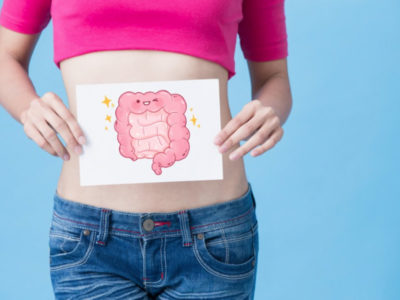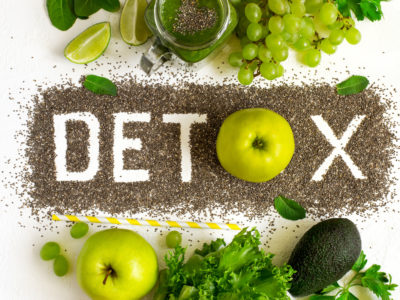Table of Contents[Hide][Show]
Mimosas at brunch…
After-work happy hours…
A glass of wine to unwind at the end of a long week…
You may not notice how often you reach for an alcoholic beverage, but your body does.
Especially your gut.
In your gut microbiome, alcohol can have effects that go far beyond a raging headache or temporary nausea.
Before we delve into the effects of alcohol on your gut, let’s take an in-depth look at your gut microbiome and why it’s so important to keep it healthy.
What Is a Healthy Gut?
Before we look at how alcohol can damage your gut, let’s look at how a healthy gut should function.
Because right now, your gut is teeming with trillions of bacteria—and surprisingly, that’s a good thing!
Your gut microbiome is the part of your gut that plays home to the vast majority of the bacteria in your body.
And there are two kinds of bacteria living in your gut microbiome, beneficial (“good”) bacteria and pathogenic (“bad”) bacteria.
- The beneficial bacteria keep your digestive system healthy, allow a robust immune response, balance your moods, and generally enhance your overall health and well-being.
- The pathogenic bacteria can contribute to digestive and mood disorders, interfere with your immune system, and can lead to serious medical conditions.
Because your gut has a limited amount of space available, the two types of bacteria constantly vie for dominance. The more space taken up by one type of bacteria, the less space will be available for the other.
Why Gut Health Matters
Ideally, those colonies of beneficial bacteria are the ones that thrive. And as they flourish and grow, they crowd out the colonies of pathogenic bacteria. Your gut microbiome is healthy and balanced as it should be.
Unfortunately, the opposite is the prevalent scenario.
Many people don’t realize it, but pathogenic bacteria are dominating their gut!
This common condition is called dysbiosis, and its effects can start off small: minor digestive ailments, lingering infections, and small mood changes.
Over time, however, these ailments can worsen and new ones will add to them, leading to a number of potentially serious health conditions, including chronic diseases such as diabetes.
Here are some of the most common ways dysbiosis can manifest.
- Aching joints
- Acid reflux
- ADHD and/or difficulty concentrating
- Anxiety, depression, and mood disorders
- Chronic fatigue
- Digestive issues, including gas, bloating, constipation, and/or diarrhea
- Food intolerance
- Heartburn
- Inflammation
- Skin issues, including acne, eczema, rashes, and psoriasis
- Trouble urinating
- Vaginal or rectal infections or itching
Your gut health, clearly, affects many different areas of your health.
But how does drinking alcohol affect your gut? Let’s explore the potential side effects and what you can do to keep your gut healthy while still enjoying the occasional glass of wine.
Related
The Relationship Between Happiness, Your Gut, and Psychobiotics
Find out how the gut-brain connection affects your mood, what psychobiotics are, and how to get more of them so you keep your brain happy.
5 Ways Alcohol Harms Your Gut Microbiome
You can see how important your gut health is, not just to your digestive system but to your entire body.
Next, let’s see what drinking alcohol does to your body.
1. It Causes Dysbiosis
Earlier, we discussed dysbiosis—the condition caused when your gut balance is imbalanced, containing more pathogenic bacteria than beneficial bacteria.
Drinking alcohol can cause dysbiosis where it didn’t exist previously, or worsen existing cases of dysbiosis, in two ways.
- Alcohol can kill off colonies of beneficial bacteria. More specifically, studies show that alcohol can decrease the presence of nine different types of beneficial bacteria.
- Alcohol can nourish colonies of pathogenic bacteria, which feed off of the chemicals found in alcohol. This side effect is even more marked if you mix your alcoholic beverages with sugary sodas or juices.
Combined, the overall effect leads to dysbiosis and the possible side effects we discussed earlier.
2. It Creates Inflammation
That imbalance between beneficial bacteria and pathogenic bacteria can also lead to inflammation.
Once again, the sugar in your alcoholic beverages—and the way it affects your gut bacteria—is the main culprit here.
Studies show that excess sugar creates an environment where pro-inflammatory bacteria can flourish.
Inflammation can be a good thing, when it’s part of your immune response to trauma, such as infection and injury.
But when inflammation is chronic, such as the inflammation caused by excessive alcohol, it can result in a long list of disorders, including arthritis, diabetes, cancer, and even some mental disorders.
3. It Leads to Gastritis
Those same pro-inflammatory bacteria can also damage the mucous membranes that line your stomach. When this lining is inflamed, it thins out and causes a condition known as reactive gastritis.
Symptoms of gastritis include:
- Abdominal bleeding
- Blood in your vomit or stool
- Feeling of fullness, even if you haven’t eaten recently or much
- Loss of appetite
- Gas
- Nausea
- Stomach pain
- Upset stomach
- Vomiting
Related
What is the Function of Mucus in the Stomach?
Chances are, the importance of a healthy gut is on your radar. Scientists and progressive physicians have strongly pointed to the gut and digestive tract as being THE key to optimal health in every part of our bodies (including our mental health.) The term “gut” refers to the group of organs responsible for helping your …
4. It Damages Your Intestinal Lining
The inflammation damage doesn’t stop at your stomach lining. The inflammatory bacteria that harm your stomach lining can also cause damage to the membranes that line other organs, including your small intestine.
That lining is similar to a mesh barrier, allowing nutrients to pass through to your bloodstream while blocking toxins.
When alcohol thins this membrane, the mesh holes become looser and wider. This makes it easier for toxins to escape into your bloodstream, a condition known as leaky gut.
And once those toxins are in your body, they can travel to other parts of your body, where they do further damage.
5. It Harms Your Liver
Even if you aren’t much of a drinker, you’ve probably heard of alcohol-related liver disease.
The gist of it is simple. Every time your liver has to filter alcohol from your blood, liver cells die. Over time, this can reduce the liver’s ability to regenerate, leading to long-term damage.
However, alcohol also damages the liver in another big way.
As we mentioned above, alcohol can damage your intestinal lining and allow toxins to flow into your bloodstream.
Your liver, which is responsible for filtering out those toxins, now has extra work to do and can become over-taxed and damaged, resulting in chronic liver disease.
How to Enjoy Alcohol Without Harming Your Gut
Yes, it’s possible!
You can enjoy that celebratory glass of champagne or join your friends for happy hour without doing irreparable harm to your gut.
Here are a few things you can do to lessen alcohol’s negative impact on your gut health.
Choose Moderation
Most of the conditions we mentioned above aren’t created by an occasional drink or two. The relationship between gut health and alcohol begins to show up with excessive drinking.
But what’s considered excessive drinking?
These are the current Centers for Disease Control (CDC)’s guidelines for alcohol consumption.
- Women should have no more than 1 drink per day or 8 drinks per week.
- Men should have no more than 2 drinks per day or 15 drinks per week.
It’s especially important to avoid binge drinking, which is 4 drinks for women or 5 drinks for men, consumed within 2–3 hours.
Sip the Right Type of Alcohol
Earlier, we touched upon how your choices of alcohol and mixers can also heighten the negative effects of alcohol. Sugar is especially harmful, feeding and fueling your pathogenic bacteria.
Clear drinks are usually the lowest in sugar. This includes vodka, gin, rum, tequila, and other colorless drinks.
Instead of mixing your drinks with sugary juices or sodas, opt for club soda—with a splash of citrus juice if you need the extra flavor.
Drink Plenty of Water
Alcohol is a diuretic, meaning you’ll be urinating frequently not just from the amount you drink, but from your body’s natural urge to eliminate toxins.
Make sure you drink plenty of water to avoid possible digestive issues, such as constipation, that can be caused by dehydration.
Take a Probiotic
We’ve talked about the importance of beneficial bacteria and how it relates to gut health.
Probiotics are live bacteria that are similar or identical to the beneficial bacteria living in your gut.
When you consume probiotics, they make their way through your digestive tract to eventually end up in your gut microbiome. Here, they join forces with colonies of good bacteria, shoring up their strength and numbers and helping them crowd out bad bacteria.
This is especially important if you drink alcohol, which has the potential to throw your gut off balance. Probiotics support those beneficial bacteria colonies, mitigating the damage caused by alcohol.
You can find probiotics in certain foods or beverages, such as pickles, kimchi, kombucha, and kefir. However, it’s difficult, or even impossible, to measure how many live bacteria make it to your gut from these probiotic foods.
The only way to really ensure you are supplying your body with plenty of probiotics, is by taking a high-quality spore probiotic supplement. Our favorite is Just Thrive Probiotic.
Just Thrive’s spore probiotic strains are naturally equipped with an endospore shell that keeps them safe as they navigate through your stomach acids, enzymes, and bile, guaranteeing that they arrive 100% alive in your gut—ready to work!
Taken alone or sprinkled into your favorite recipes, Just Thrive Probiotic’s multiple DNA-verified strains of beneficial bacteria support your digestive, immune, and overall health. (Plus, it comes in a gummy!)
Although we still urge moderation with alcohol consumption, taking a probiotic can support your beneficial bacteria so that alcohol won’t affect them as drastically, and promote a balanced microbiome.
Final Thoughts
There’s no doubt that alcohol has a negative impact over many areas of your health, including your gut health.
In your gut, particularly, alcohol can have a severely detrimental effect, killing beneficial bacteria and leading to a number of medical conditions, from mild to chronic.
So, do you have to give up wine with dinner or forego the vacation cocktails?
The answer is no… as long as you are mindful of your intake and support your gut with spore probiotics for optimal functioning overall wellness.
And, as with everything, moderation is key to a healthy, happy, mind and body!
You May Also Like…





